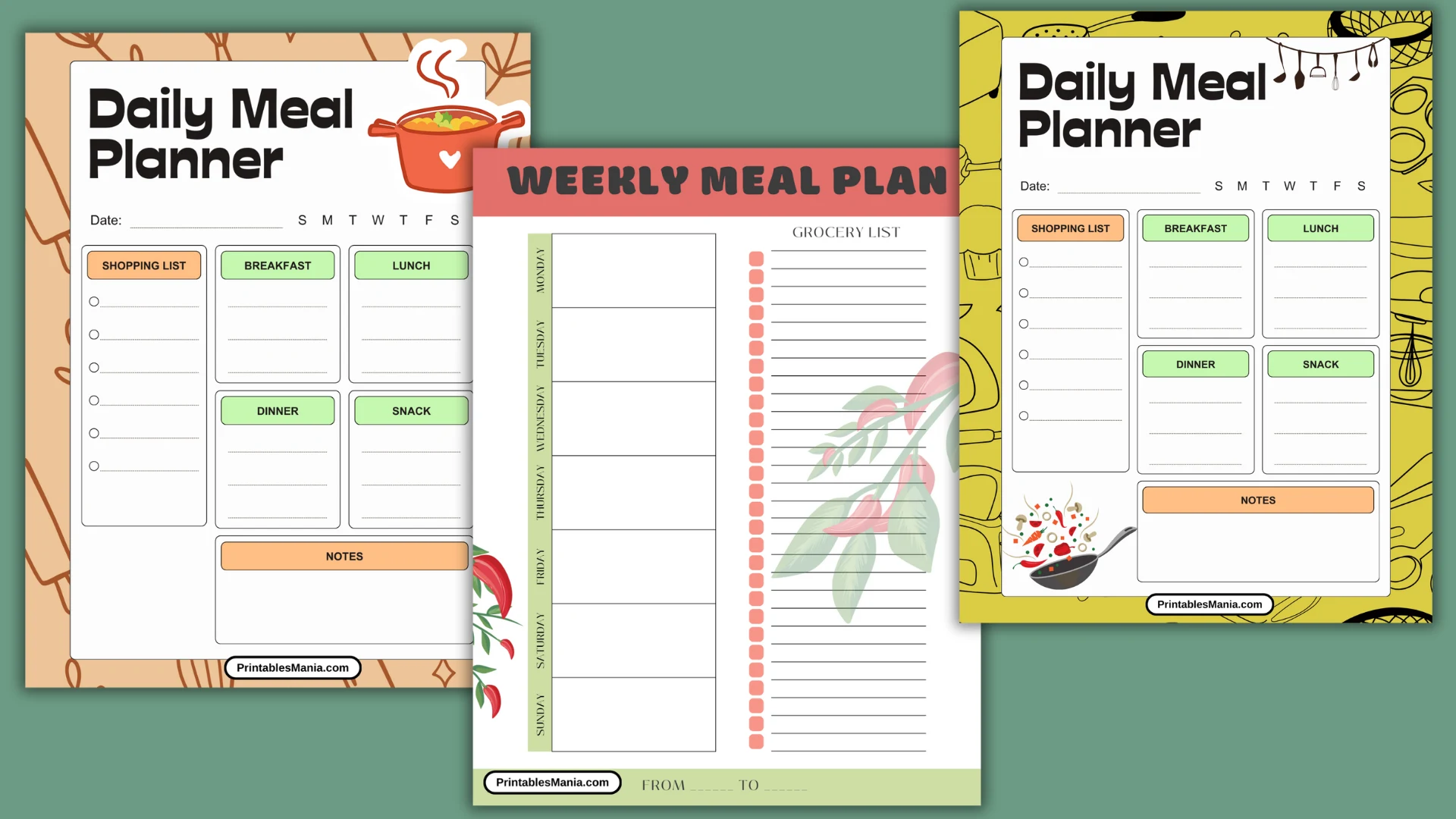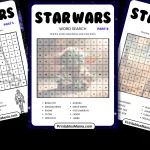Planning meals can be a daunting task, but with our Free Printable Meal Planner PDF, you can simplify your weekly menu and grocery shopping. This easy-to-use tool is designed to help you stay organized, save time, and eat healthier.
Why Use a Meal Planner?
A meal planner is a valuable resource for anyone looking to streamline their meal preparation process. Here’s how our meal planner can benefit you:
- Stay Organized: Keep track of your meals and ingredients in one convenient place.
- Save Time: Plan your meals ahead of time to avoid last-minute decisions and reduce trips to the grocery store.
- Eat Healthier: Ensure balanced meals by planning ahead and including a variety of nutritious foods.
- Reduce Waste: Buy only what you need by planning your meals, helping to minimize food waste.
Features of Our Free Printable Meal Planner
Our meal planner PDF is thoughtfully designed to make meal planning easy and efficient. Here’s what you’ll find:
- Weekly Meal Planning: Space to plan meals for each day of the week.
- Grocery List: A section to jot down all the ingredients you need for your planned meals.
- Notes: Extra space for any additional notes or reminders.
How to Use the Meal Planner
- Download and Print: Access the free printable meal planner PDF and print it out.
- Plan Your Meals: Fill in your planned meals for each day of the week.
- Create Your Grocery List: Write down all the ingredients you’ll need for your planned meals.
- Stay Consistent: Use the meal planner each week to stay organized and maintain a healthy diet.
Get Your Free Printable Meal Planner PDF
Ready to simplify your meal planning? Download your Free Printable Meal Planner PDF today and take the first step towards a more organized and healthier lifestyle!
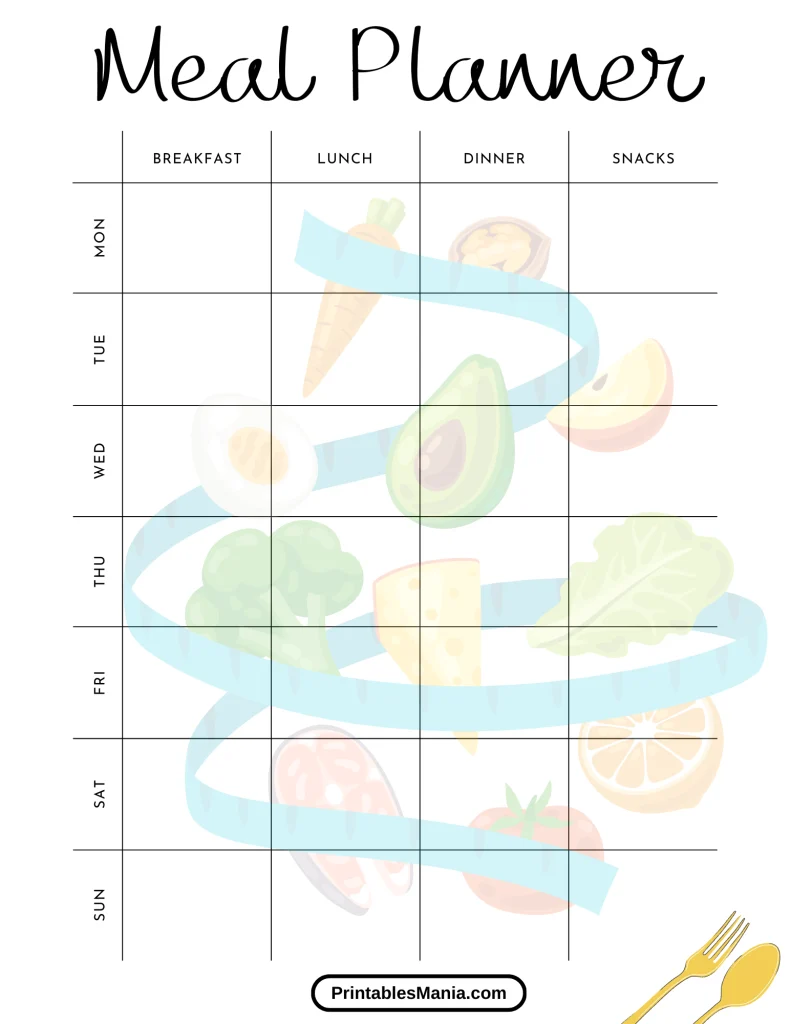
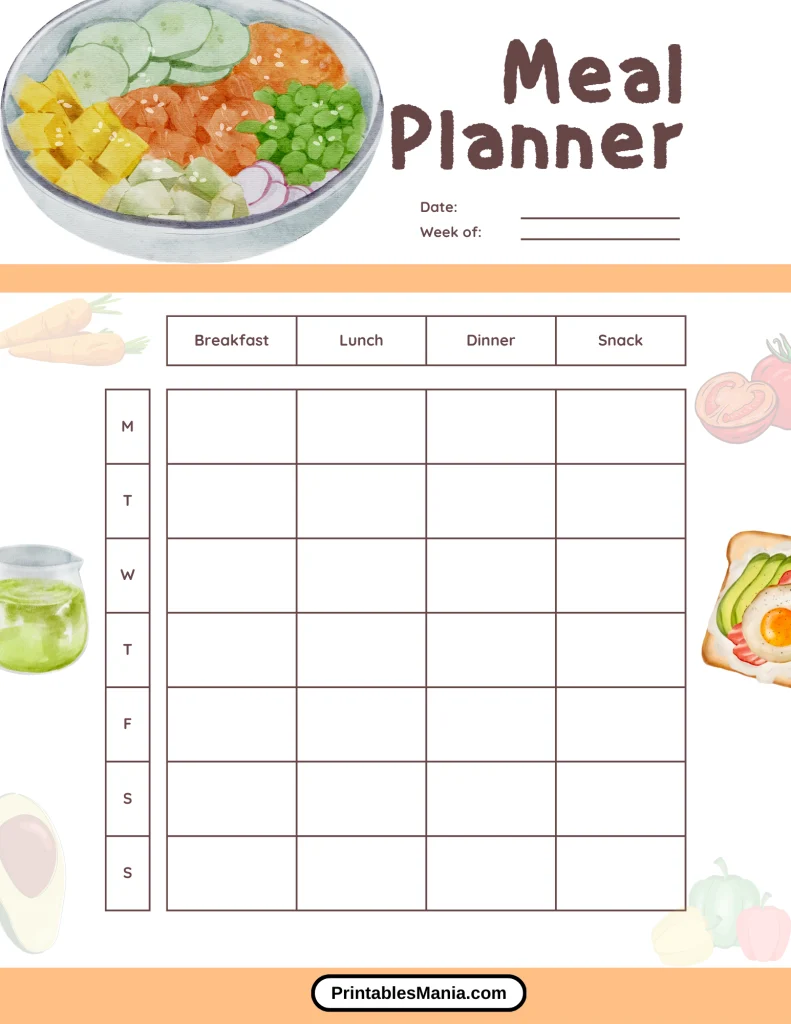
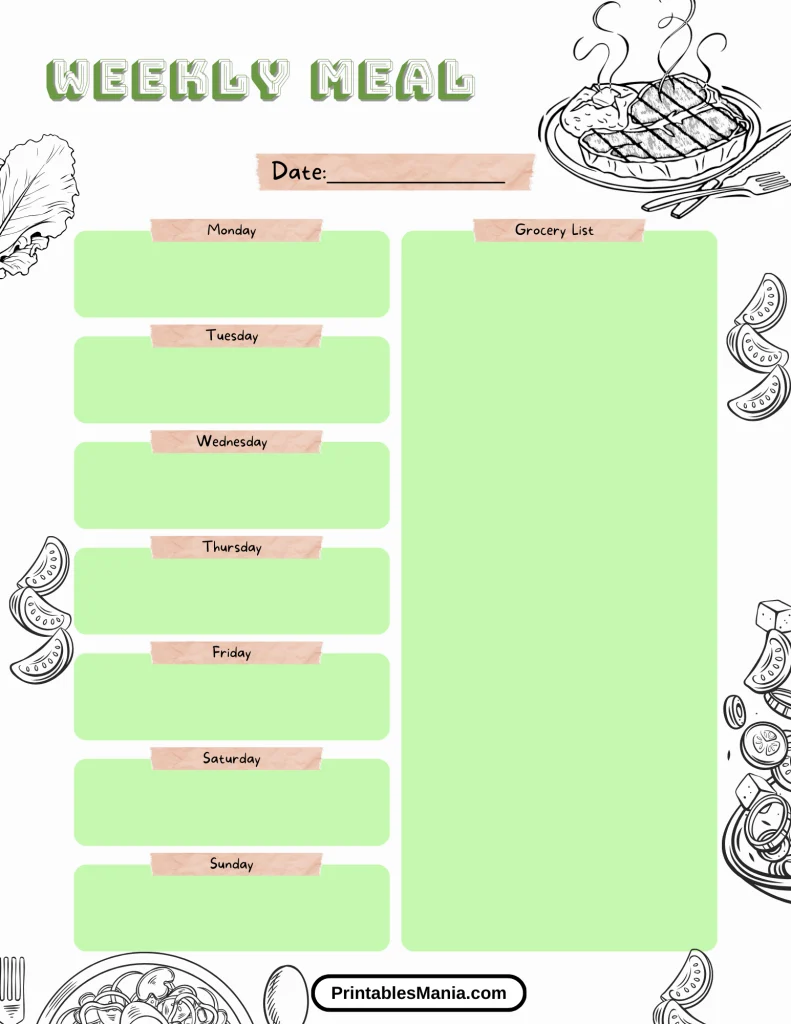
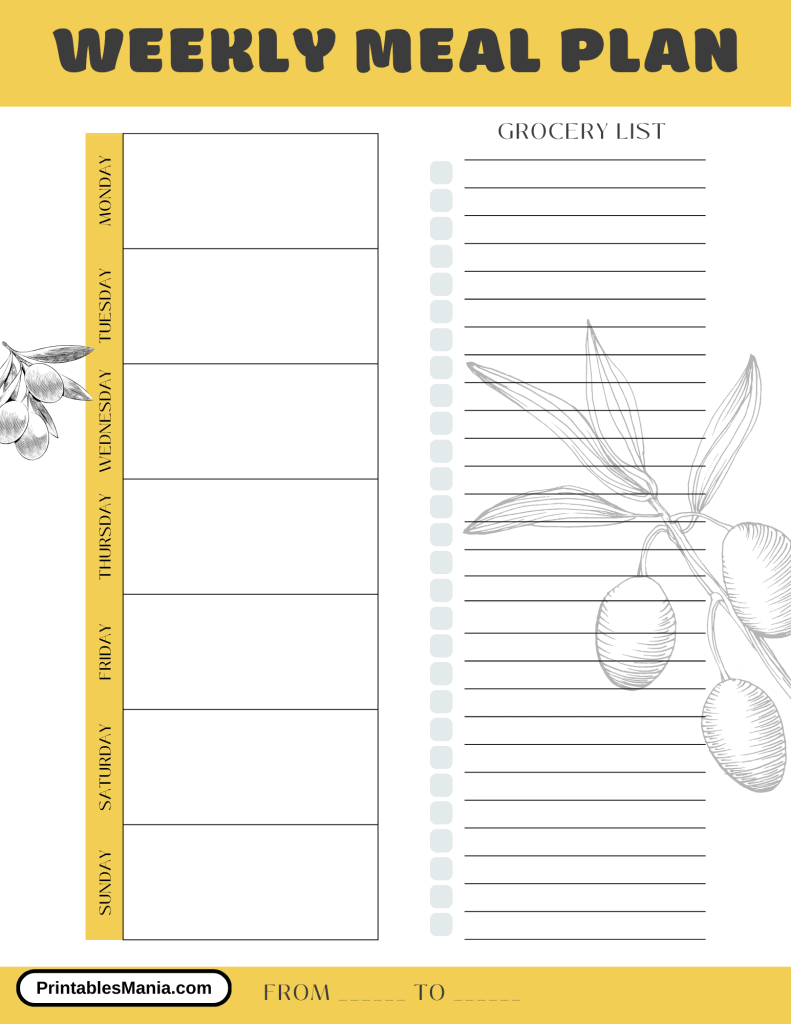
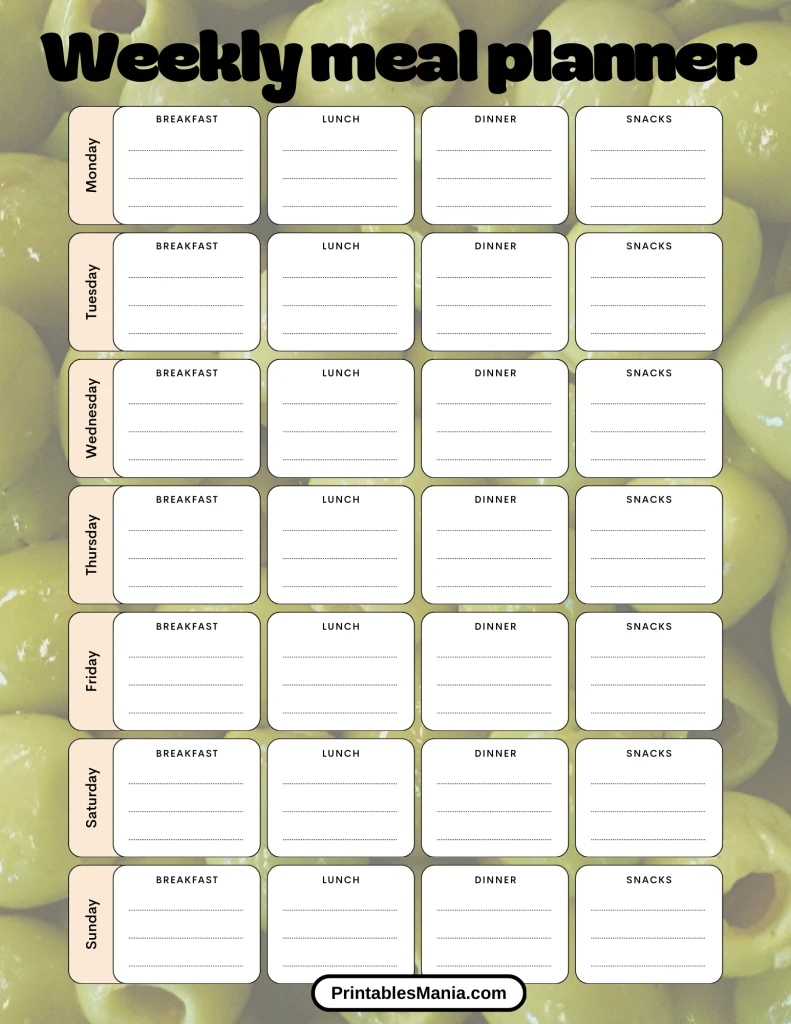
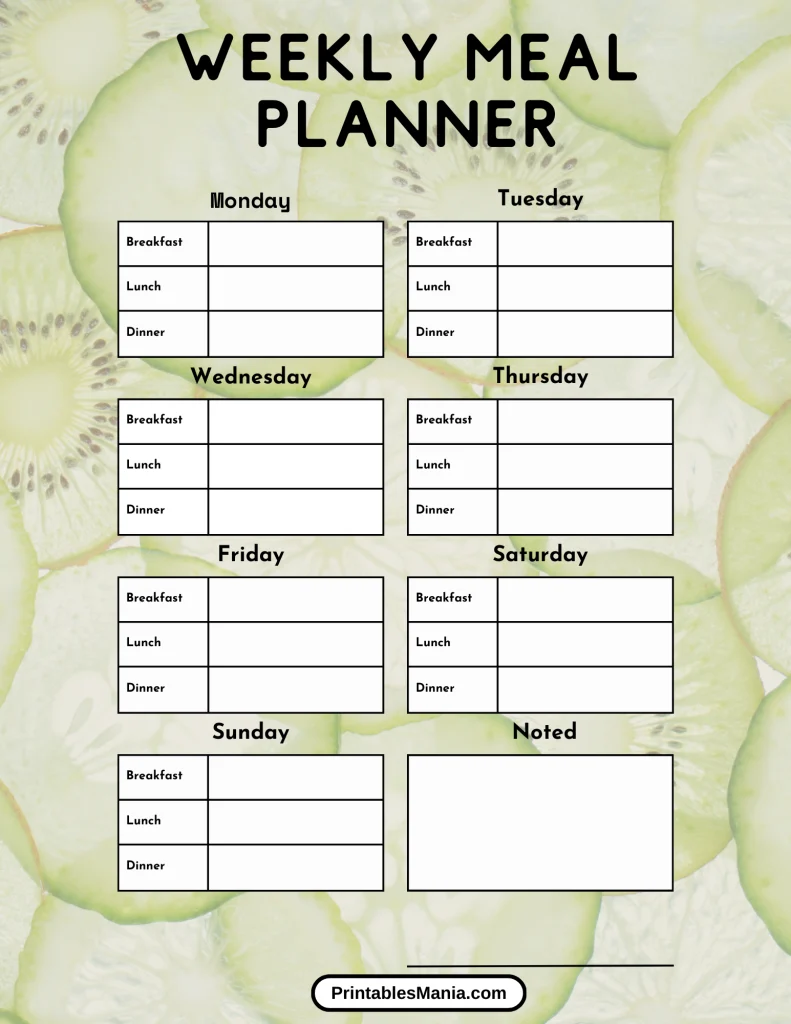
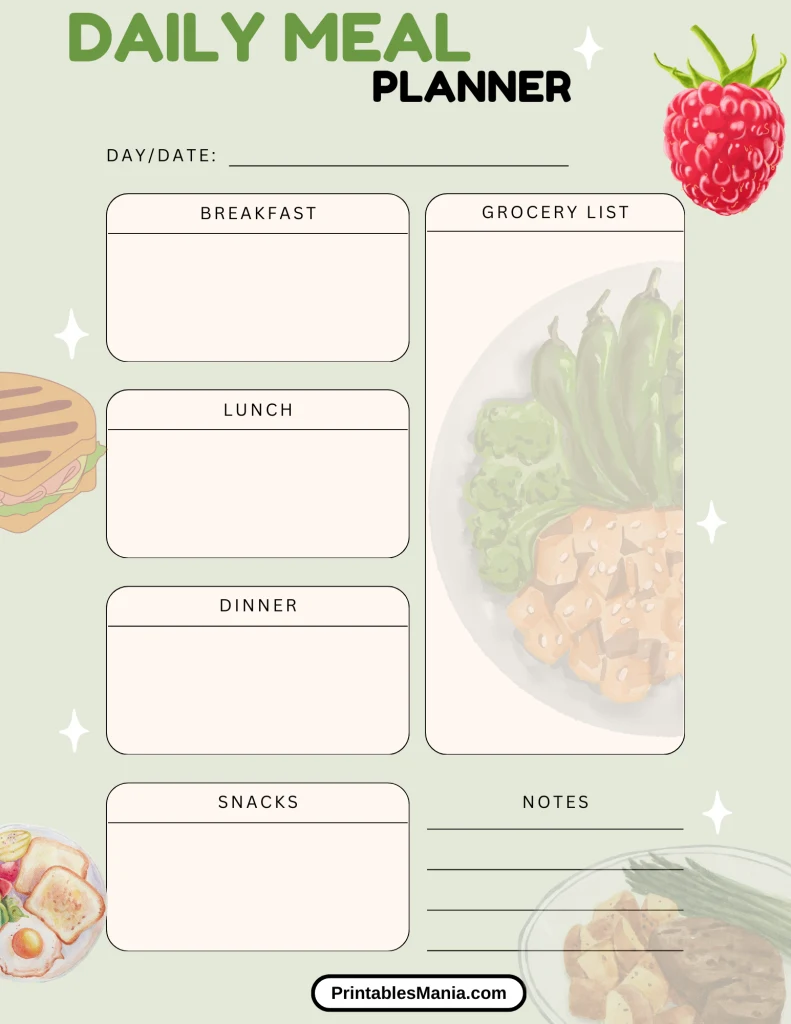
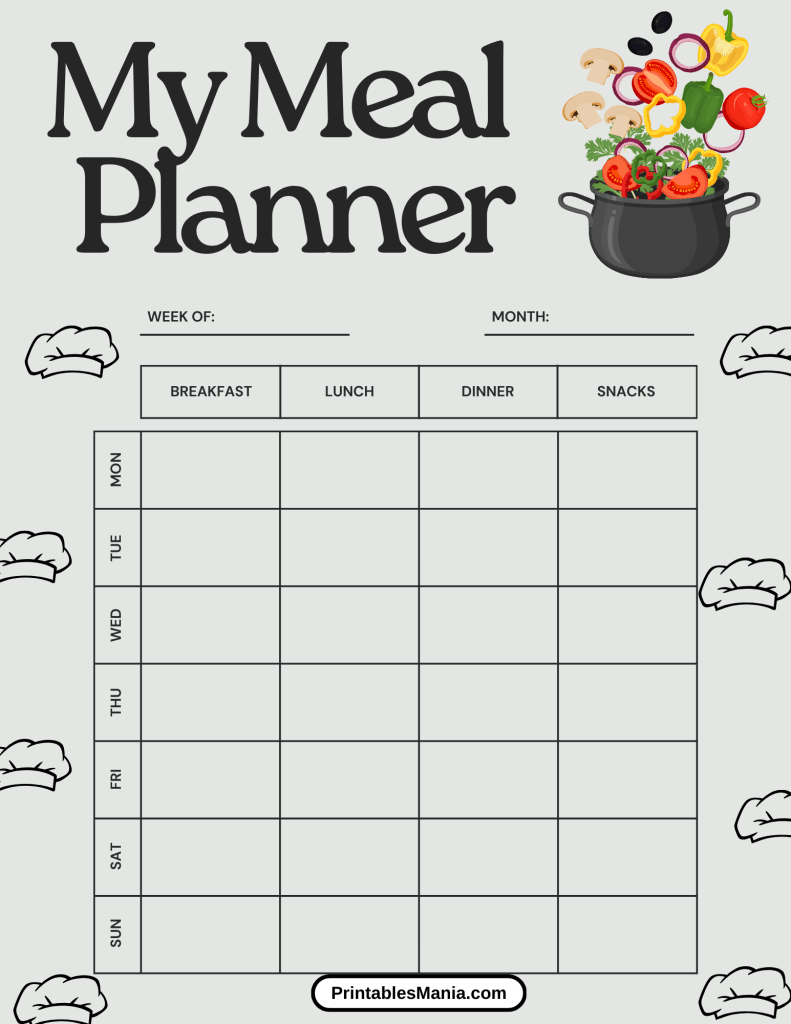
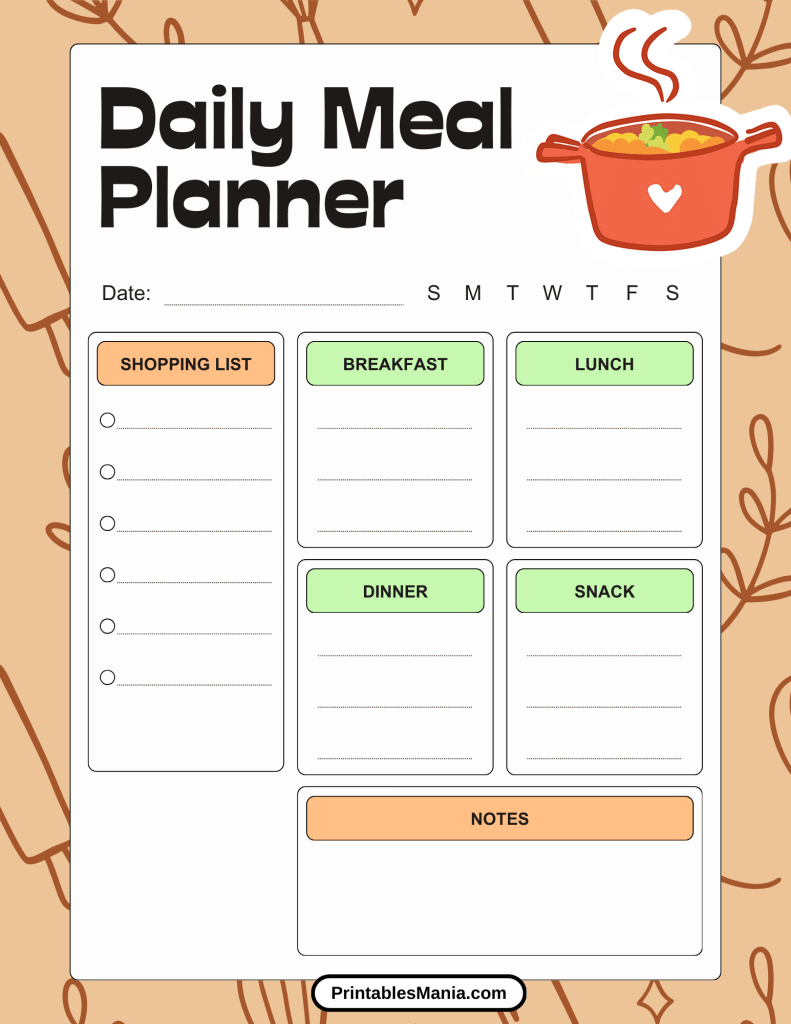
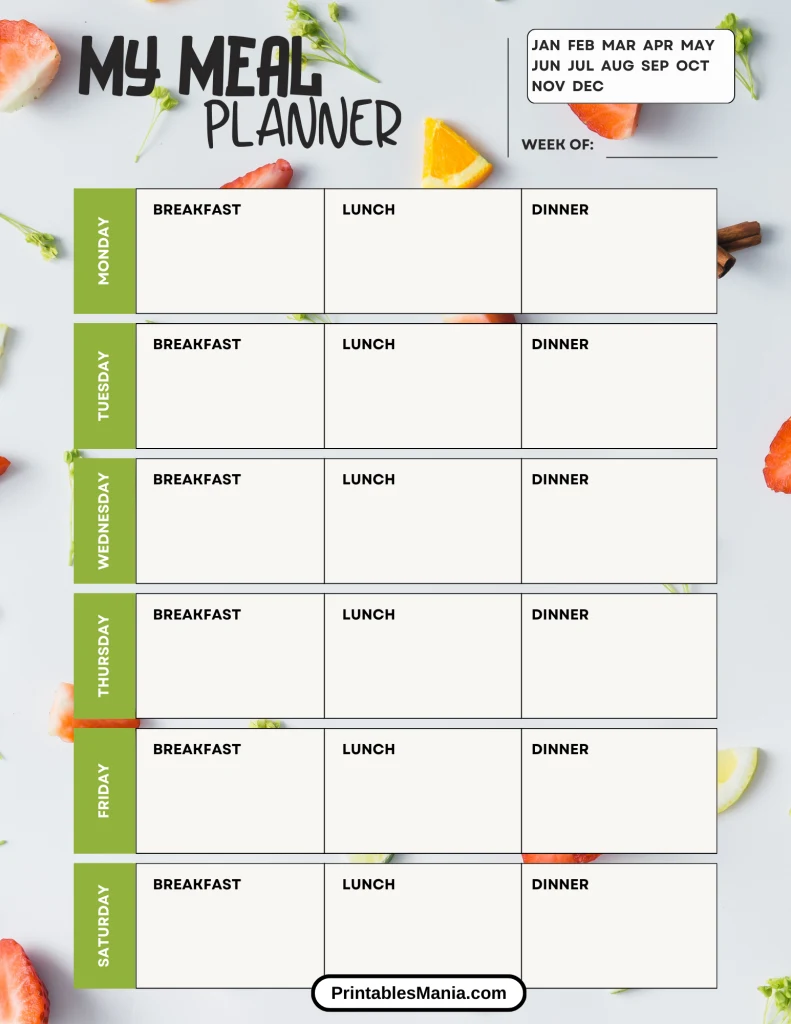
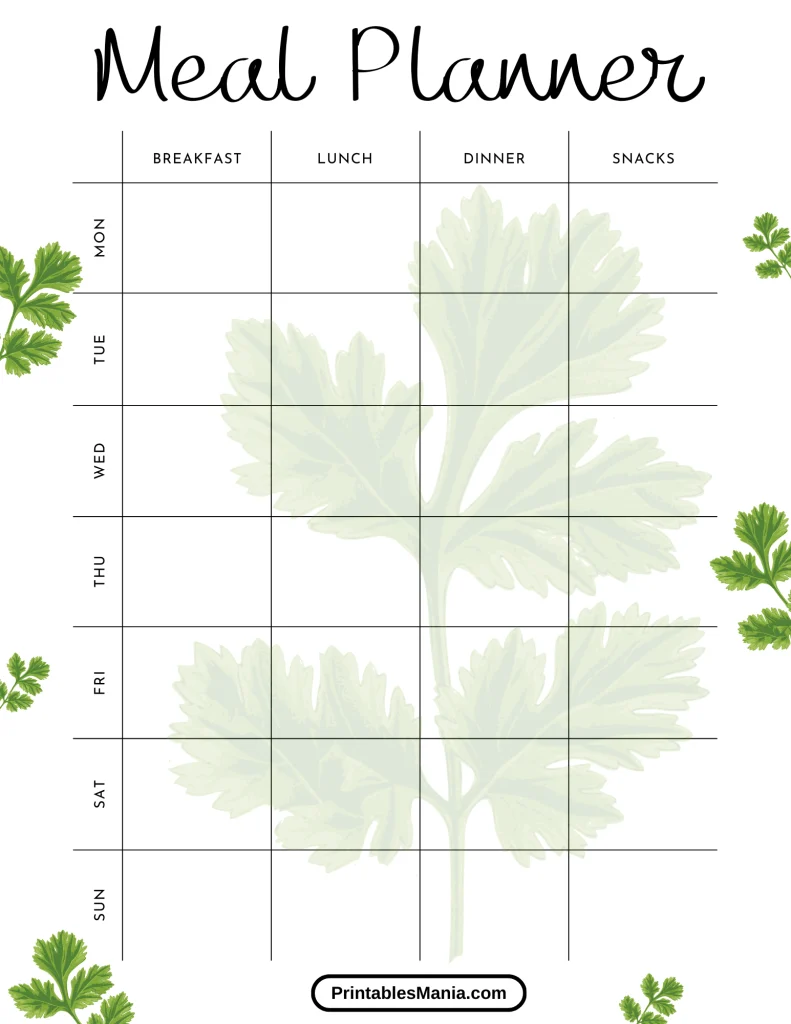
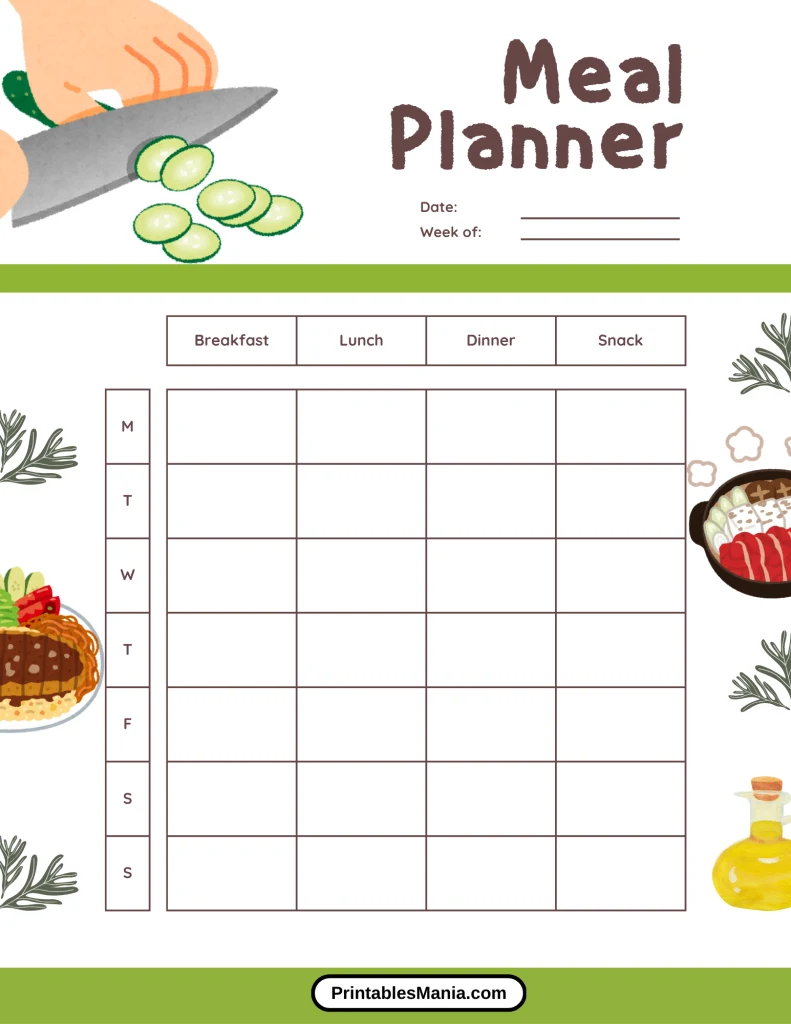
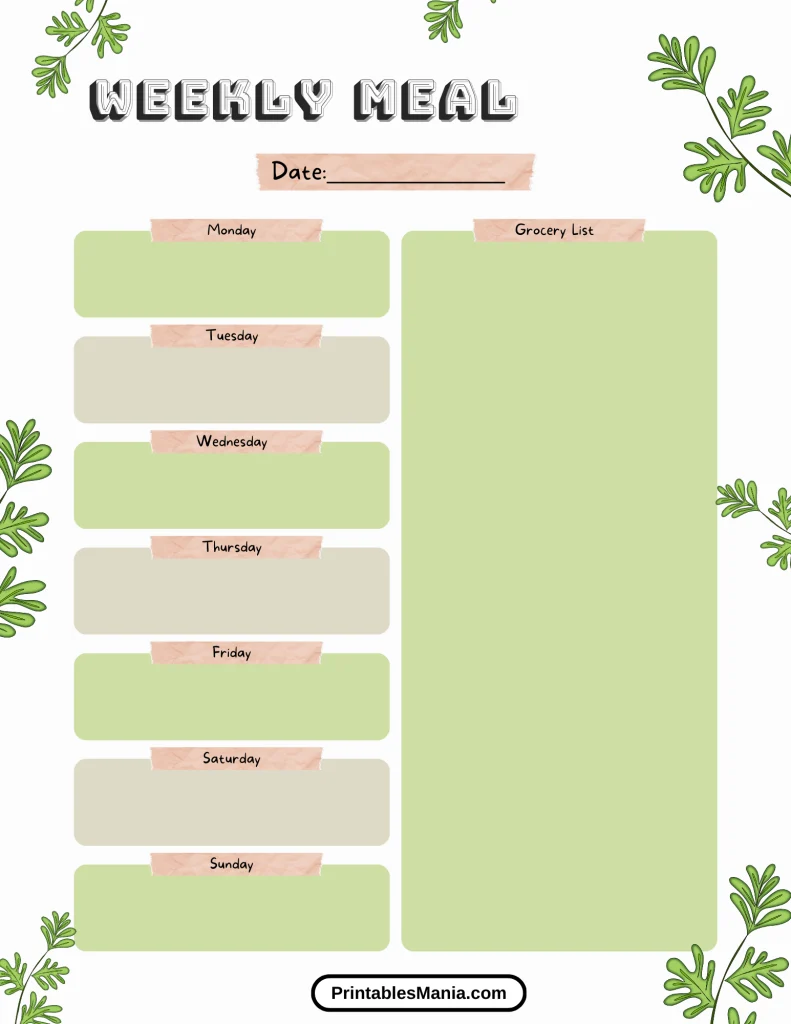
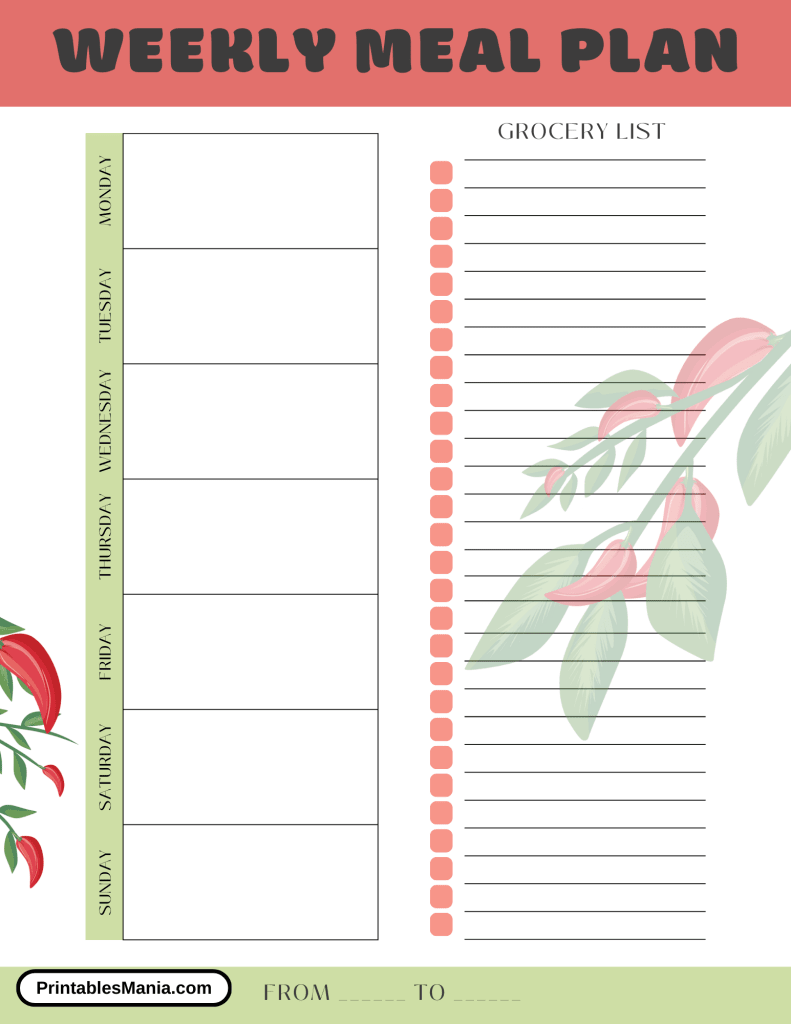
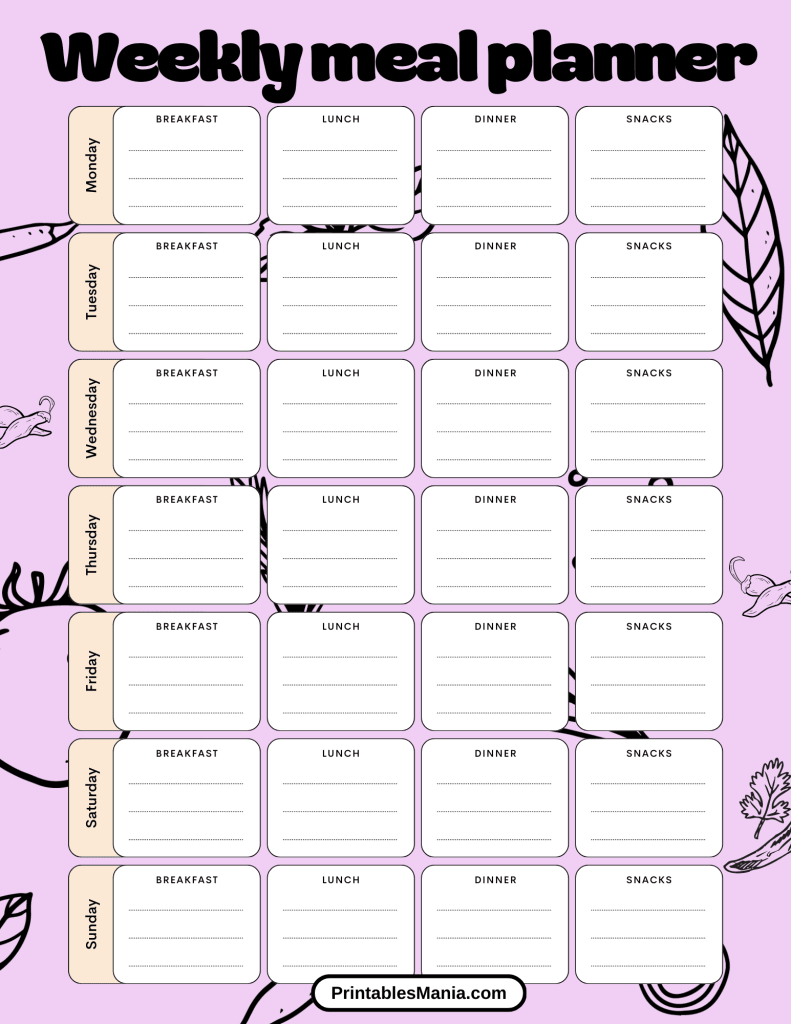
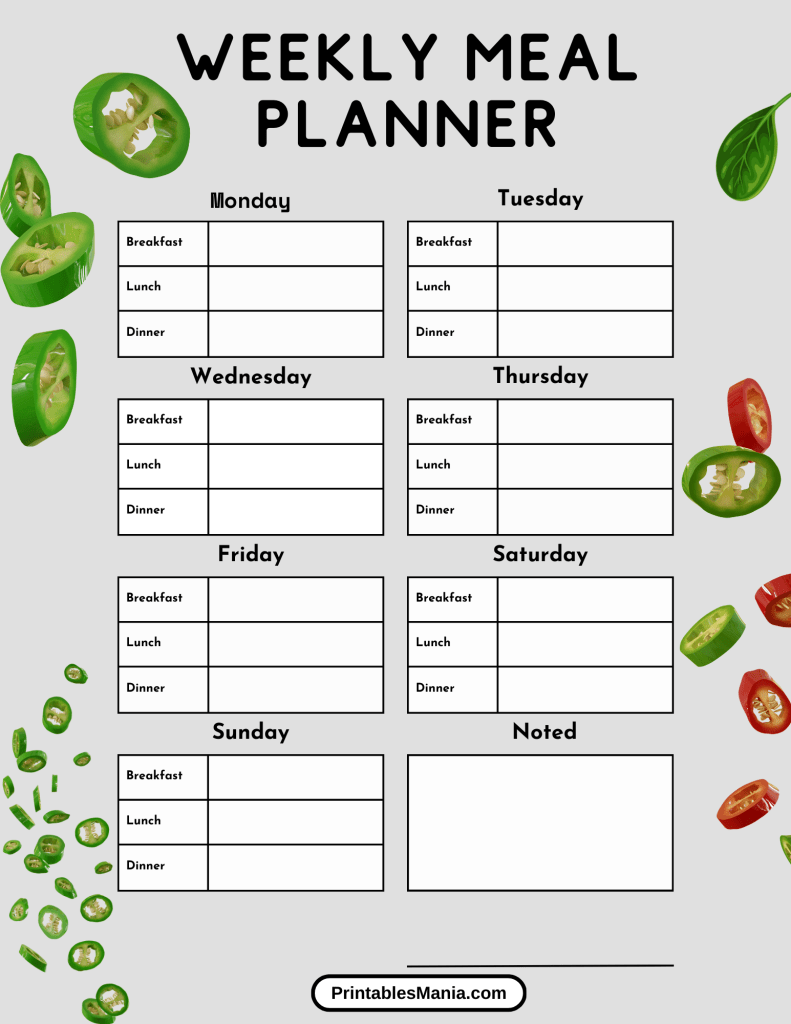
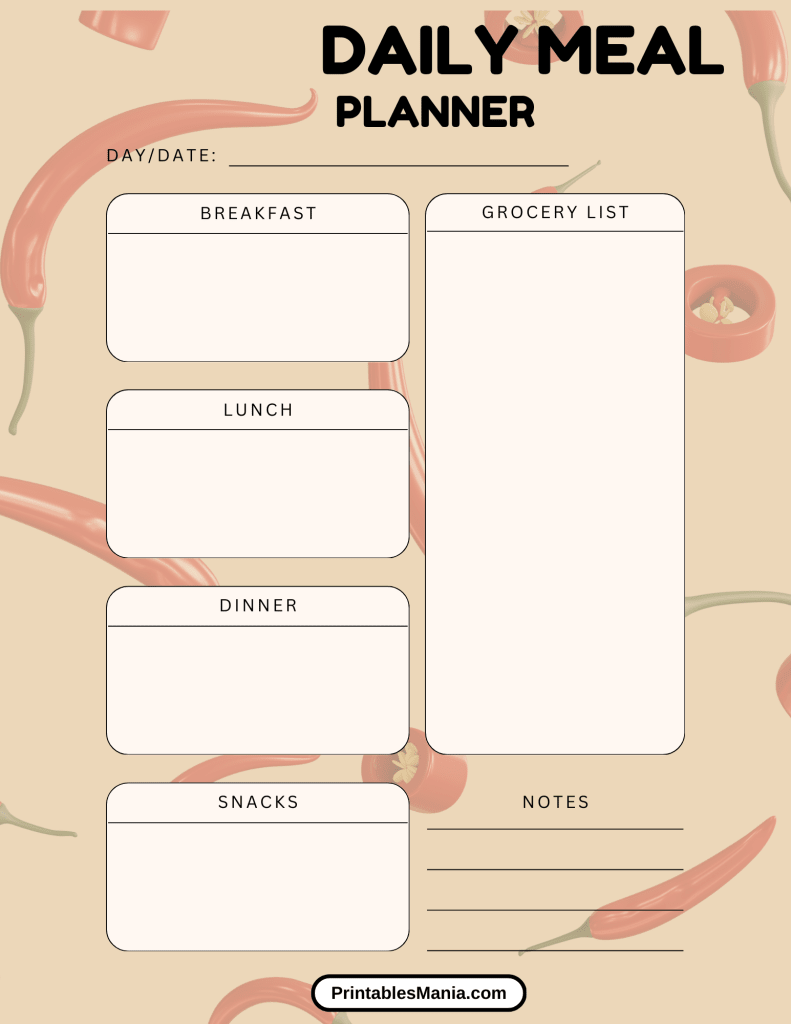
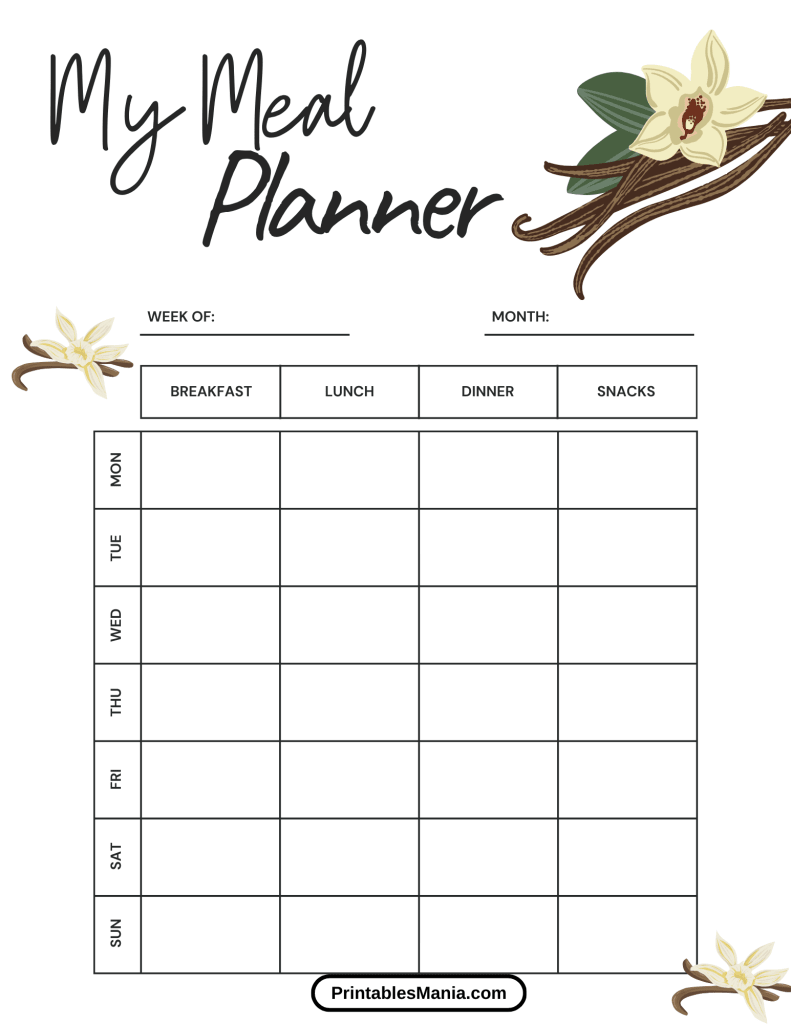
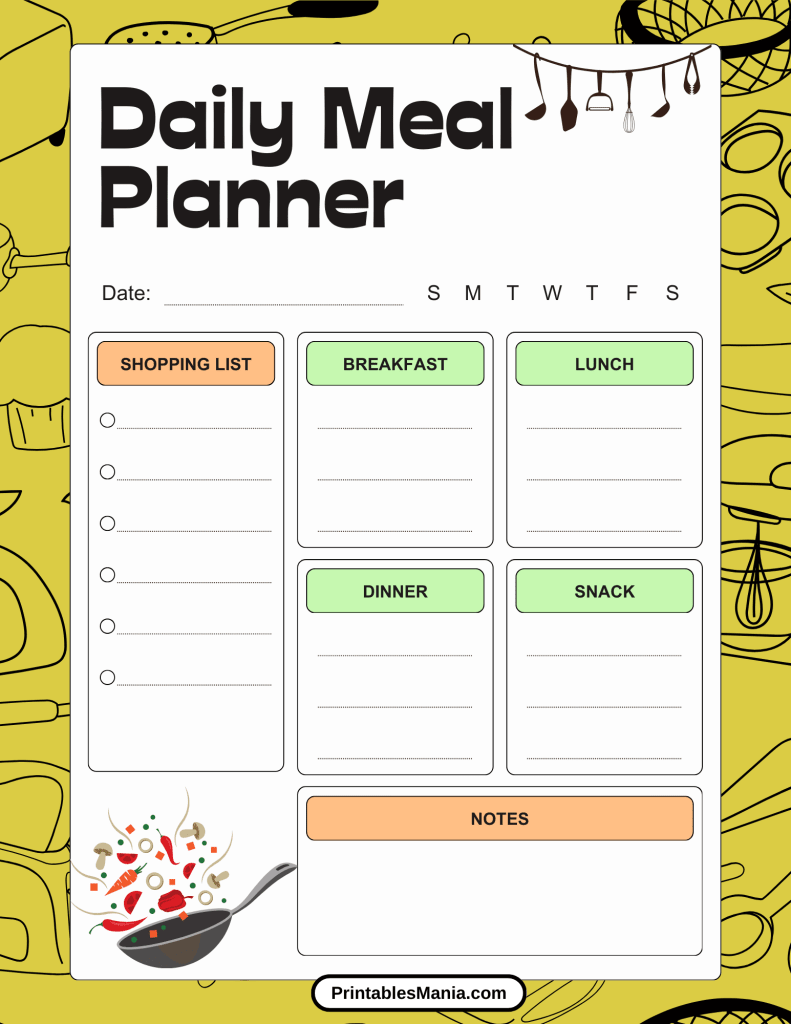
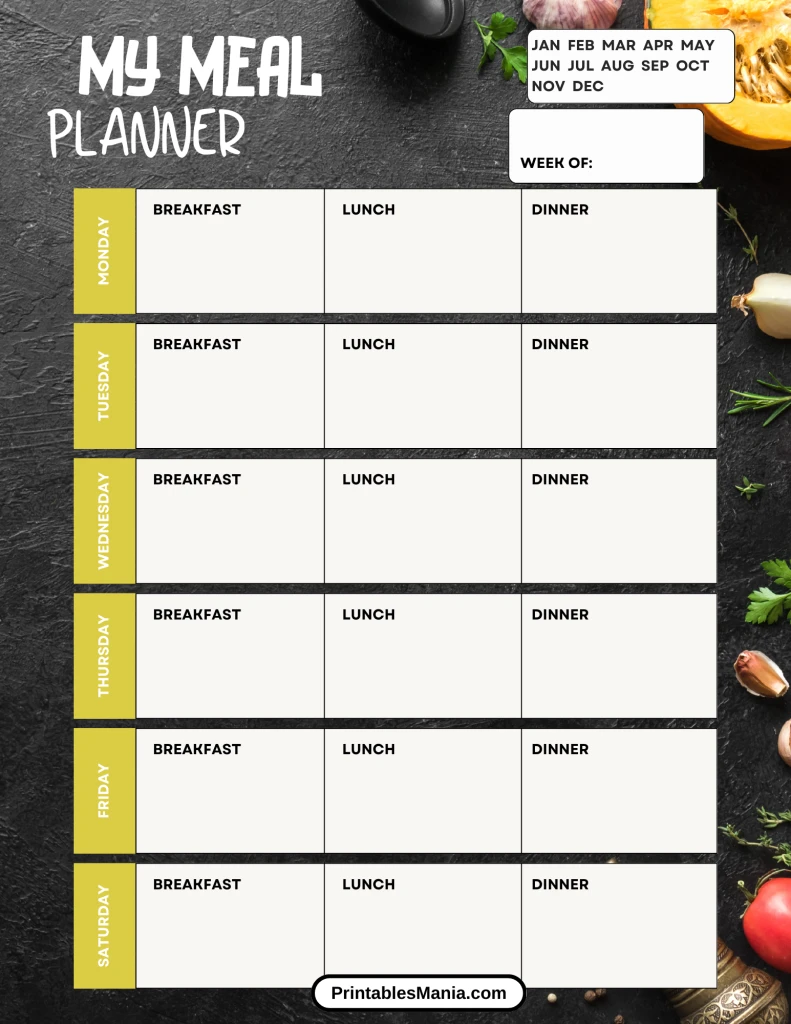
Benefits of Meal Planning
Meal planning is a powerful tool that can bring numerous benefits to your daily life. Here are some key advantages:
Save Money
When you plan your meals ahead of time, you can create a precise shopping list that includes only the items you need. This helps you avoid impulse buys and reduces the chance of purchasing unnecessary items. By sticking to your list, you can significantly cut down on grocery expenses.
Reduce Food Waste
Meal planning allows you to buy the right amount of food, ensuring that everything you purchase gets used. This minimizes the amount of food that goes to waste and helps you make the most of your grocery budget.
Eat Healthier
Planning your meals gives you the opportunity to incorporate a balanced diet into your weekly routine. You can ensure that you’re including a variety of fruits, vegetables, proteins, and whole grains, leading to healthier eating habits.
Save Time
With a meal plan in place, you don’t have to worry about last-minute decisions on what to cook. You can prepare ingredients in advance, streamline your cooking process, and enjoy stress-free meal times.
Reduce Stress
Knowing what you’re going to eat each day eliminates the daily stress of deciding what to cook. This can make your week run more smoothly and give you peace of mind.
Improve Portion Control
When you plan your meals, you can better control portion sizes, which is beneficial for maintaining a healthy weight and managing dietary needs.
Tips for Effective Meal Planning
Meal planning can seem daunting at first, but with a few simple tips, you can make it an easy and enjoyable process. Here are some strategies to help you get started:
Plan for Variety
Include a mix of different types of meals to keep things interesting and ensure a balanced diet. Incorporate various proteins, vegetables, grains, and fruits. Trying new recipes can also make meal times more exciting.
Prep in Advance
Use your meal planner to identify meals that can be prepared ahead of time. Spend some time on the weekend prepping ingredients, making sauces, or even cooking full meals that can be reheated later. This saves time on busy days and ensures you always have something healthy ready to eat.
Involve the Family
Get input from family members to ensure that everyone’s preferences are considered. This can also be a fun way to introduce new recipes and foods to try together. Involving kids in the planning process can also teach them valuable cooking and organizational skills.
Keep It Flexible
While it’s great to have a plan, be open to making adjustments as needed. Life can be unpredictable, so it’s helpful to have a few quick and easy backup meals in mind in case your original plan changes.
Use Leftovers Wisely
Incorporate leftover ingredients into new meals to minimize waste and save time. For example, leftover roasted vegetables can be added to salads or turned into a delicious soup.
Shop Your Pantry
Before creating your shopping list, take stock of what you already have in your pantry, fridge, and freezer. This helps you use up existing ingredients and avoid buying duplicates.
Make It a Habit
Set aside a specific time each week to plan your meals. Whether it’s Sunday afternoon or another convenient time, making meal planning a regular part of your routine can help you stay consistent.
By following these tips, you can make meal planning a seamless and enjoyable part of your weekly routine, leading to healthier eating habits and a more organized lifestyle.

